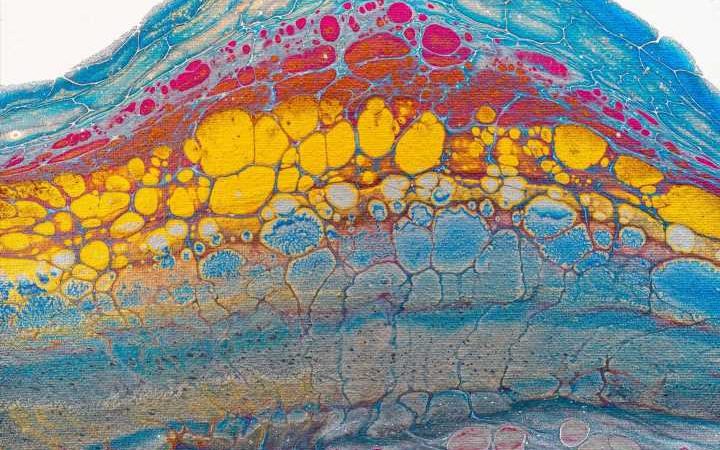
Posoleucel, an investigational allogeneic off-the-shelf T-cell therapy that simultaneously targets six different viruses, demonstrated promising antiviral efficacy and safety in a phase II study of patients who had undergone stem cell transplantation to treat their cancer or other blood diseases, according to a publication in Clinical Cancer Research, a journal of the American Association for Cancer Research.
Patients with blood cancers and other hematologic disorders may be treated with allogeneic stem cell transplantation (allo-SCT), a procedure in which the patient’s stem cells are replaced by those from a donor. Patients who undergo this procedure are highly susceptible to viral infections that can lead to significant morbidity and mortality, explained Thomas Pfeiffer, MD, the first author of the study and an assistant professor of pediatrics at Washington University School of Medicine in St. Louis.
The treatments currently available for patients who develop infections after allo-SCT have several limitations, noted Bilal Omer, MD, the study’s senior author, a pediatric hematologist-oncologist at Texas Children’s Hospital, and an assistant professor of pediatrics and member of the Dan L Duncan Comprehensive Cancer Center at Baylor College of Medicine.
“Traditional antiviral medications often have difficult-to-tolerate toxicities, such as myelosuppression or kidney injury,” he said. “Moreover, their efficacies are limited in this patient population, and treatment resistance develops relatively easily.”
In this phase II clinical trial, Pfeiffer, Omer, and colleagues evaluated the safety and efficacy of posoleucel, an investigational therapy comprised of donor T cells that target six of the most common viruses seen in patients following allo-SCT: adenovirus, BK virus, cytomegalovirus (CMV), Epstein-Barr virus, human herpes virus 6, and JC virus.
“The ability to target six viruses with a single therapy would be beneficial for patients with multiple viral infections,” said Omer. “Additionally, posoleucel is the first T-cell therapy in development for BK virus, which can cause severe bladder infections, resulting in excruciating pain for patients.” Since posoleucel utilizes healthy donor T cells rather than the patient’s or transplant donor’s T cells, it avoids the lengthy development process of more customized therapies, making it an off-the-shelf therapy readily available for use, Omer added. “Patients with these viral infections often have severe symptoms and require treatment as soon as possible,” he said.
The trial enrolled 58 adult and pediatric patients who had undergone allo-SCT to treat cancers or other diseases of the blood and had infections of at least one of the six viruses that posoleucel is designed to target. Eligible patients were either unresponsive to or unable to tolerate standard therapies for these viruses. In total, there were 70 viral infections in the trial population, the majority of which were CMV and BK virus infections.
Fifty-five of 58 patients (95 percent) had responses to posoleucel within six weeks of infusion, and the amount of circulating virus was reduced by an average of 97 percent in these patients. Among the 12 patients who had more than one viral infection, 10 patients (83 percent) had a response against the viruses with which they were infected.
Responses were defined as reduction of viral load to normal range with resolution of clinical signs and symptoms (complete response), or as a viral load reduction of at least 50 percent or a 50 percent improvement of clinical signs and symptoms (partial response).
Responses against specific viruses were as follows:
- Adenovirus: 83 percent of 12 patients had a response within six weeks.
- BK virus: 100 percent of 27 patients had a response within six weeks.
- CMV: 96 percent of 24 patients had a response within six weeks.
- Epstein-Barr virus: 100 percent of two patients had a response within six weeks.
- Human herpes virus 6: Three of four patients responded and viral load was reduced in all four patients.
- JC virus: The one patient with JC virus infection experienced initial stabilization of viral symptoms; however, symptoms ultimately progressed, and the patient died.
No patients experienced cytokine release syndrome. Thirteen patients (22 percent) reported acute graft-versus-host disease (GvHD); however, only four of these cases were considered de novo cases, as nine patients had been diagnosed with GvHD prior to posoleucel treatment. Only three patients reported acute GvHD grade 2 or higher. The most common GvHD symptoms were skin flares, which were successfully treated in the majority of cases.
“The key finding is that 95 percent of patients whose infections had been refractory to conventional therapies responded to posoleucel with corresponding reductions in viral load and with limited rates of GvHD,” said Pfeiffer. “Overall, posoleucel was found to be very effective and had a favorable safety profile in a highly vulnerable patient population.”
“Another exciting observation from this study was that posoleucel could be administered within 24 hours in some cases, with symptom resolution in a matter of days in some patients,” noted Omer. “It was quite impressive how quickly patients could be treated.”
A limitation of the study was its single-arm design. Randomized phase III clinical trials evaluating posoleucel are underway.
More information:
Posoleucel, an Allogeneic, Off-the-Shelf Multivirus-Specific T-Cell Therapy, for the Treatment of Refractory Viral Infections in the Post-HCT Setting, Clinical Cancer Research (2023). DOI: 10.1158/1078-0432.CCR-22-2415
Journal information:
Clinical Cancer Research
Source: Read Full Article
